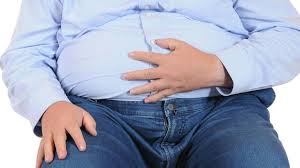Childhood obesity detection and treatment

Childhood obesity detection can be avoided by engaging in physical activities and healthy living
Childhood obesity detection: Causes of being obese or overweight
Obesity and overweight are a serious threat to human life, allowing this to happen in one’s life is not only harmful but also life shortening. We must do all it takes to ensure that we are safe from these conditions. By doing this will only be effective when we impact the healthy lifestyle in our children and being keen to monitor their growth and development just in case there is evidence of development of obesity or overweight. This will help us remain focus and make early detection which will make us take precautions to correct this before it escalate to a life threatening levels. Therefore as parents, we need to be knowledgeable of the causes, precautions and solutions. Therefore childhood obesity detection becomes very important if this scourge is to be defeated. That is to say, if your child is obese or overweight, it means that they are carrying excess body fat and if no action is taken, the extra weight may cause problems for their health.
You may not have any idea how to go about this because for sure it is not easy. We want to be of help to you and your children by inviting you to pay us a visit at AWAREmed Health and Wellness Resource Center under Doctor Akoury’s care. Doctor Akoury together with her team of experts will be waiting for you to help you establish whether your child is overweight or obese by calculating their body mass index (BMI). This is a measurement of your child’s weight in relation to their height as we do this, remember that a child’s BMI is not interpreted in the same way as it is done for adults, their BMI is charted on special growth charts which show how your child’s BMI compares with the normal range for children in the same age bracket, sex and ethnic background.
Childhood obesity detection: Causes of obesity and overweight in children
This is very important for everyone including children, your weight is dependent on how much energy you take in (the calories in food and drink) and how much energy your body uses (burns) up:
- If the amount of calories that you eat equals the amount of energy that your body uses up, then your weight remains stable.
- If you eat fewer calories than you burn up, you lose weight. Your body has to tap into its fat stores to get the extra energy it needs.
- If you eat more calories than you burn up, you put on weight. The excess energy is converted into fat and stored in your body.
The reasons why energy taken in may not balance energy used up and leading to weight gain in children, includes:
How much a child eats and drinks: Overweight in children is mainly because of what they eat and drink more than their body needs. Having too many foods or drinks that are too sugary or fatty is a common problem.
Lack of physical activities: It is important to know that a child may be eating the right type and the right amount of food but, if they are not doing enough exercises, they may put on weight. Activities like watching TV and playing video games for many hours also contribute to weight gain besides having parents who are inactive all these increases a child’s risk of being overweight or obese.
Childhood obesity detection: Causes of being obese or overweight
http://regenerativepotential.com/wp-admin







